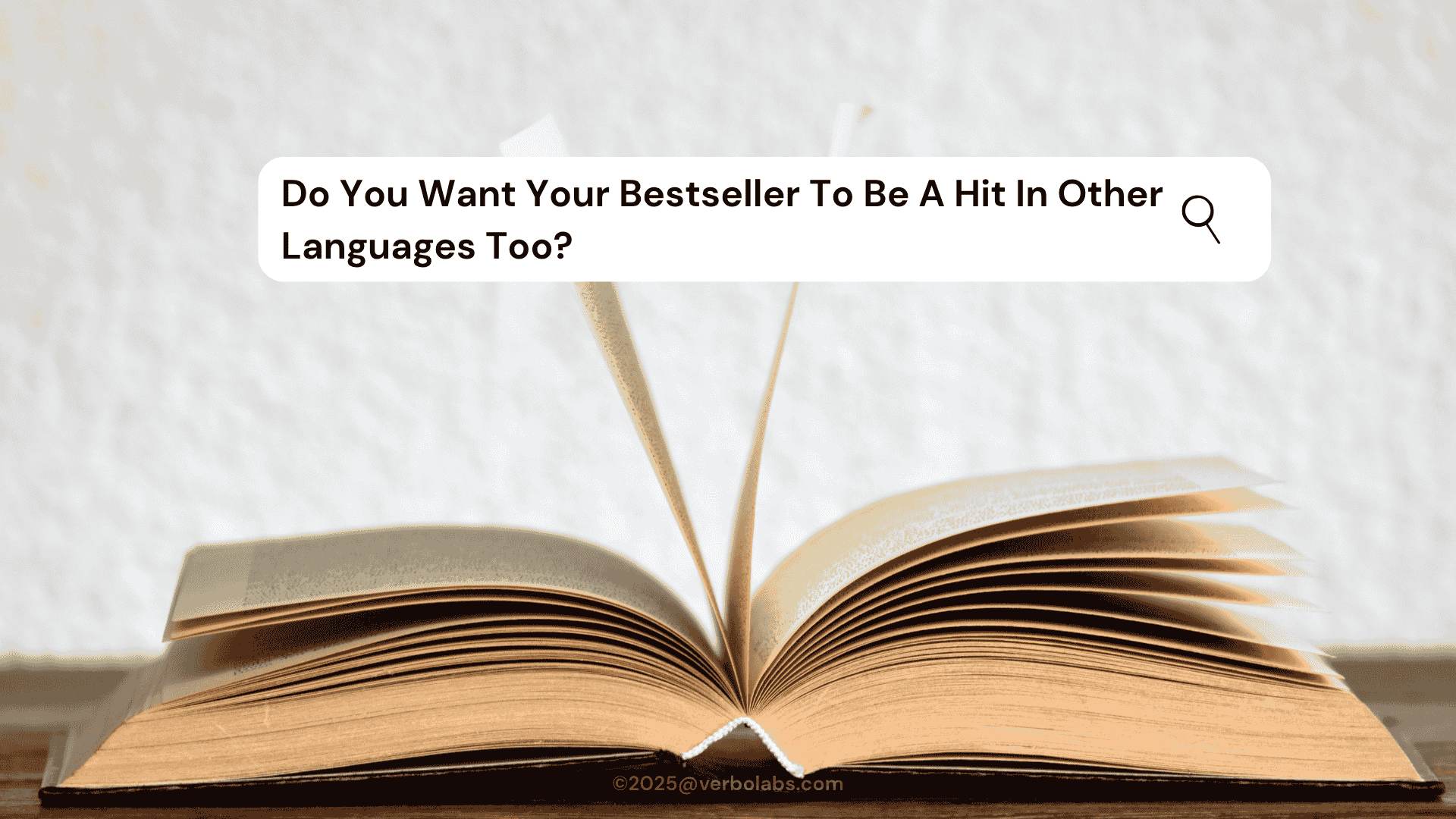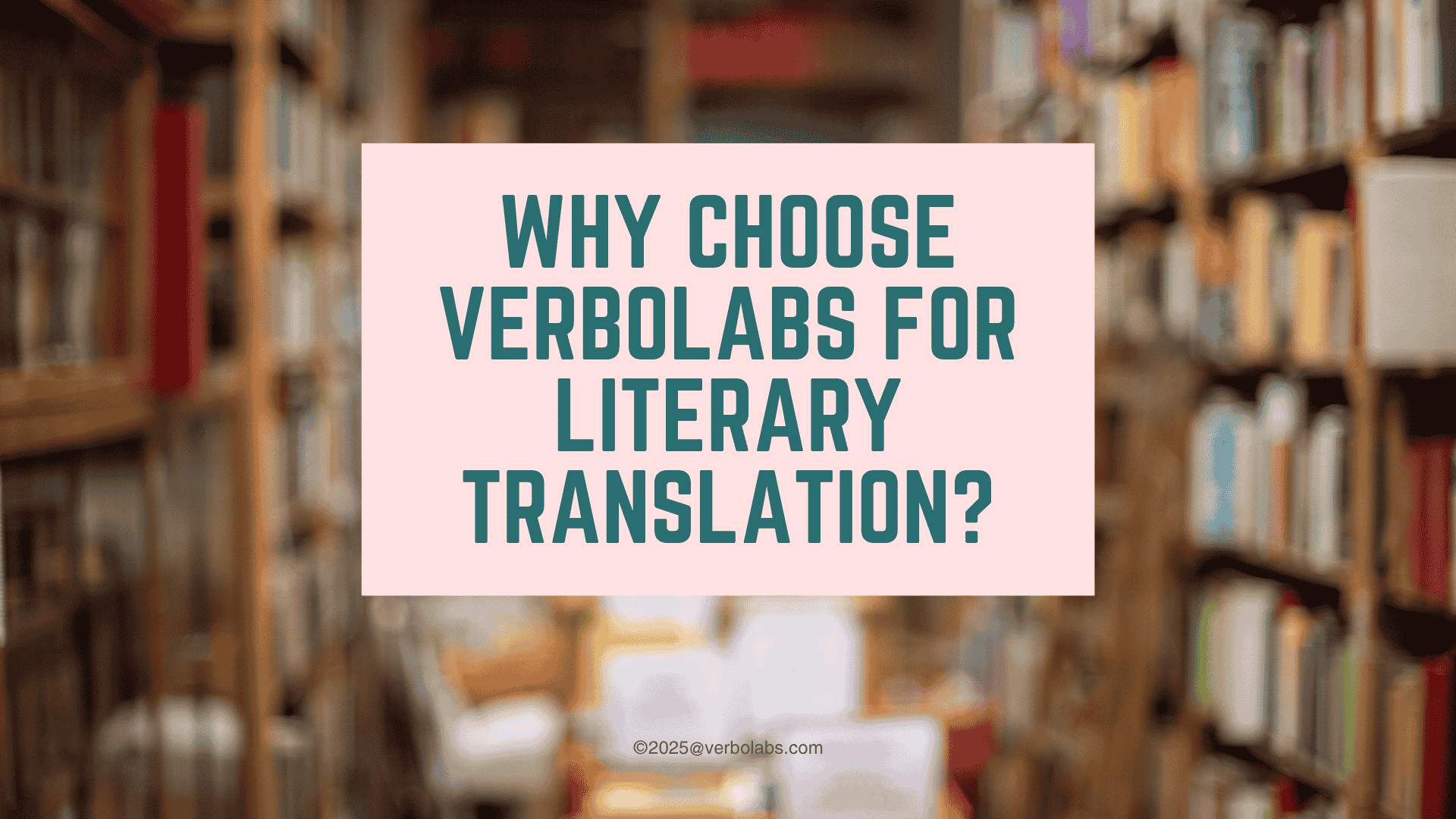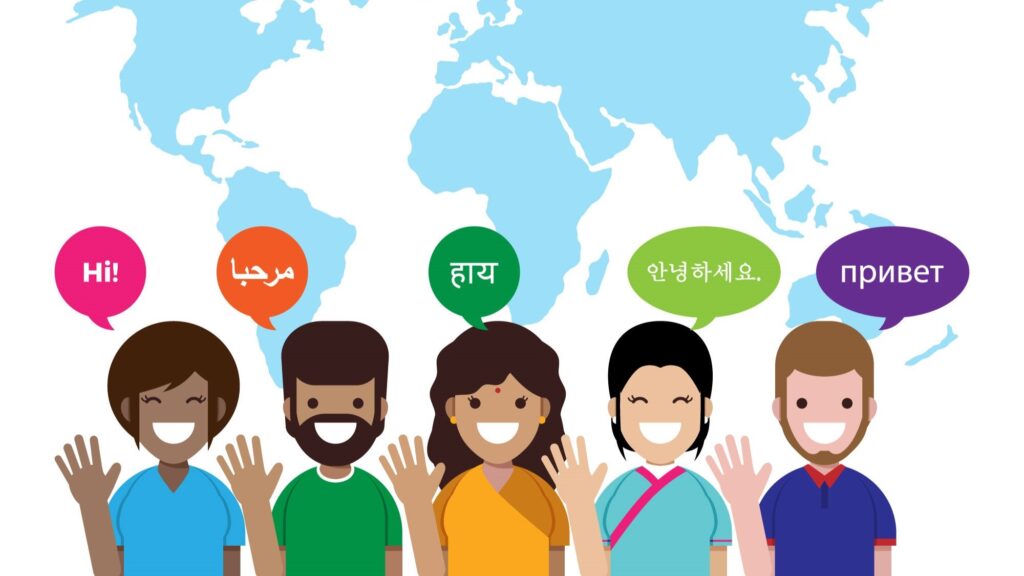
Why Translation Is the Key to Global Readership? Did you know that 72.1% of readers prefer buying books in their native language? And that translated books contribute to over 15% of total publishing revenue in multilingual markets like India, Europe, and LATAM? That’s why literary translation for bestsellers has become a vital strategy for authors and publishers aiming to grow globally.
From Harry Potter to The Alchemist, literary translation has played a massive role in turning national bestsellers into global cultural phenomena. But great translation doesn’t happen by accident—it requires expertise, cultural understanding, and literary finesse.
If you’re an author, publisher, or literary agent with a bestselling title, this blog will help you understand why and how to translate your book effectively—and how VerboLabs can be your trusted literary translation partner.
Why Translate Your Bestseller?
1. Tap into New Markets Without Creating New Content
Translating a successful book is a low-risk, high-reward strategy. You already have a proven narrative—why not scale it across languages?
Case in Point: The Immortals of Meluha by Amish Tripathi, originally written in English, gained even more fame when translated into Hindi, Bengali, and Marathi—tapping into millions of regional readers across India.
2. Leverage the Power of an Established Name
A bestseller carries weight. The brand is already established in one language, so readers in other languages are more likely to trust it. Plus, you can save on marketing—word-of-mouth and curiosity often do the job.
Example: Fifty Shades of Grey was translated into 52 languages, becoming a global publishing sensation.
3. Cost-Effective and Faster Than Writing a New Book
Instead of writing a new installment or spin-off, translation offers a faster route to revenue.
You only need the rights, a qualified literary translator, and a project manager to oversee the work.
Where Is Book Translation Most Important?
1. Multilingual Countries
Countries like India, South Africa, Canada, and Switzerland have multiple official languages. Translating into regional languages can boost accessibility and inclusivity.
2. Global Markets with Language Barriers
To enter non-English-speaking markets like Germany, Japan, France, Brazil, or China, you need localized translations that respect idioms, metaphors, and storytelling structures native to those regions.
3. Diaspora and Expats
Millions of readers abroad crave books in their heritage language. Translations make your work culturally relevant for global communities.
Also Read:
- How Translation Can Take Your Book Global: A Guide for Authors
- Why Translation from English to Hindi Needs Experts?
- 7-Compelling Reasons Why You Need Website Translation
Who Needs Literary Translation?
VerboLabs caters to:
- Independent authors looking to self-publish internationally
- Publishing houses expanding catalogues into regional or foreign languages
- Literary agencies representing international rights and authors
- eBook platforms and audiobook publishers exploring new geographies
If your book has achieved success in one market, translation is your next step towards international success.
How to Translate Your Bestseller Professionally
Step 1: Hire Qualified Literary Translators
Literary translation isn’t just about word-for-word substitution. It’s an art—requiring deep understanding of the source language, the target language, and cultural storytelling techniques.
At VerboLabs, our literary translators are published authors, poets, and scholars fluent in the target language. They recreate the voice, tone, and emotion of your original work.
Step 2: Collaborate Closely with Experts
Successful book translation often involves the author, translator, and editor working collaboratively. Nuances, metaphors, jokes, and cultural references need to be aligned with the target audience.
Step 3: Proofreading, Typesetting, and Localization
We don’t just translate—VerboLabs offers end-to-end literary localization services, including:
- Proofreading by native editors
- Cultural and regional adaptation
- Desktop publishing (DTP) for printed and digital formats
- Audiobook translation & voiceover (optional)
- eBook formatting & typesetting
Why Choose VerboLabs for Literary Translation?

1. Expertise in Literary Projects
We specialize in literary translation services across genres—fiction, non-fiction, children’s books, poetry, and more.
2. Multilingual Capabilities
We translate in 120+ global and regional languages, including Hindi, Tamil, French, Spanish, Mandarin, Arabic, German, and more.
3. Human Creativity, Tech Efficiency
Our human translators are supported by AI-assisted QA tools to ensure consistency, tone, and linguistic accuracy—without compromising creativity.
4. Scalable and Timely Delivery
Whether you have one title or an entire catalogue, our project management system ensures timely delivery, error-free formatting, and multi-format output.
Case Study: Translating Bestsellers with Impact
A leading Indian publisher collaborated with VerboLabs to translate 5 of their English titles into Hindi, Tamil, and Marathi. Result? 32% increase in regional sales within 6 months and thousands of new readers acquired across tier-2 and tier-3 cities.
Ready to Translate Your Bestseller?
Don’t let your story stay confined to one language. With VerboLabs’ professional book translation services, you can connect with new readers, enter new markets, and multiply your success.
Get in Touch, Explore our Translation Services. Learn more about Literary Translation Solutions
Final Thoughts
Language is not a barrier—it’s an opportunity. If your book has already won hearts in one language, literary translation for bestsellers can help it reach millions more and build an international readership.
Partner with VerboLabs to translate your bestseller and make your story a global success.

Turn your bestseller into a global success. Contact VerboLabs for expert literary translation today.



